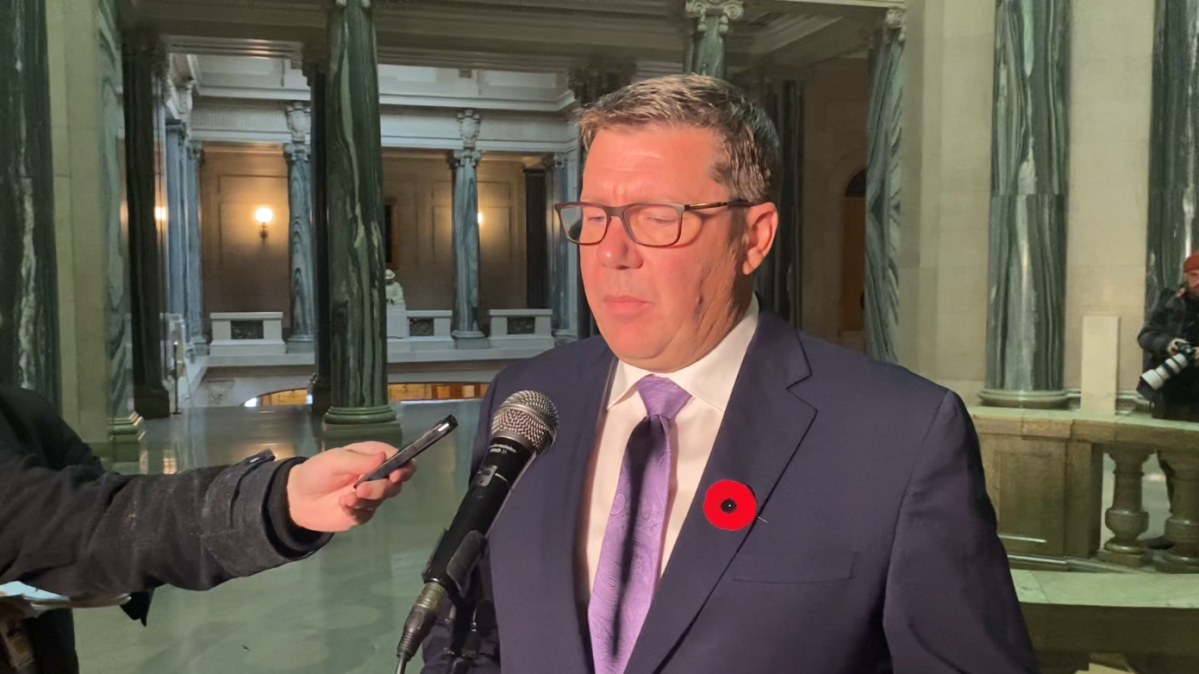In the wake of convicted killer Colin Thatcher’s widely condemned appearance at throne speech ceremonies last week, the Saskatchewan NDP is renewing its calls for the province to begin providing operational funding to second stage shelters in Saskatchewan.

Saskatchewan is among only a few provinces that doesn’t provide operational funding for second stage shelters, which offer long-term housing and programming for women and children trying to escape abusive situations.
“Last week was proclaimed Violence Prevention Week by the Saskatchewan Party government. The minister of justice encouraged everyone to learn the signs of violence and speak up in a government news release,” Status of Women Critic Jennifer Bowes said during question period Monday.
“Yet those government members sat awfully silent and shamefully unapologetic about welcoming an unrepentant, convicted wife-murderer to the chamber floor. What does that deafening silence say about this government’s commitment to addressing domestic violence in Saskatchewan?”
According to a 2021 Statistics Canada release detailing 2019 data, Saskatchewan had the highest rate of intimate partner violence of any Canadian province at a rate of 724 victims per 100,000 residents. The national average was 344.
In post-question period scrums, Saskatchewan NDP Leader Carla Beck said the lack of ongoing operational funding means that in addition to providing shelter services, organizations must actively fundraise, oftentimes with staffing limitations.
“In order to run their programs they have to seek out grant funding, which makes their programs very unstable,” she said.
“If you can imagine, an executive director of a second stage shelter, not only does she have to do staffing and run programming to keep people safe, she actually has to run fundraising to keep the doors open, to keep the lights on. Funding would stabilize the program, and perhaps allow additional spaces to open up.”
Second stage shelters in Saskatchewan include Sapohtewin House in La Ronge; the Prince Albert Safe Shelter for Women, Adelle House and Turning Points in Saskatoon; North East Outreach 2nd Stage Housing in Melfort and SOFIA House and Wichihik Iskwewak Safe House in Regina.

A 2020 study of second stage shelter services conducted by Women’s Shelters Canada concluded that second stage shelters reduce the risk of future abuse, trauma and femicide.
It recommends “sustainable, core operational funding for all second stage shelters,” pointing out the shelters are a unique form of transitional housing that provide wraparound supports including expertise in gender-based violence, survivor-centered programming, counselling, housing-related support and safety planning.
“The lack of sustainable funding for second stage shelters significantly impacts their ability to provide all the necessary programs and supports to keep survivors safe and moving towards independence,” the study reads.
Many second stage shelters across Canada rely on fundraising to meet their operating costs. Second stage shelters in Newfoundland and Labrador, Saskatchewan, and Ontario do not receive any sustainable provincial government funding.
This has a particular impact on staffing as funding limitations restrict the number of staff that second stage shelters can hire. Overall, more staff are needed, especially specialized workers for children’s programming, legal support, and housing support.”
In question period scrums, Premier Scott Moe said the government funds a portion of second stage shelters’ capital budget needs.
“Certainly we’ll talk with the CBOs offering second stage shelter services, but we need to make sure we have enough primary transitional space as well,” he said.
“Are there opportunities for us to drive those (interpersonal violence) rates down so that we have less domestic abuse happening in our communities? For us, as a government we need to have those discussions about how we can provide leadership in that respect.”

Justice Minister Bronwyn Eyre responded to Bowes’ chamber queries.
“Absolutely we are open to exploring second stage housing possibilities, how that looks like. We’re having those conversations actively and have been for a number of weeks and months,” she said.
In its most recent budget, the Saskatchewan government committed $24.9 million in interpersonal violence supports including:
- $1.1 million in programing for children exposed to violence;
- $650,000 for early outreach and support for those experiencing family violence through the Family Intervention Rapid Support Teams (FIRST);
- $8.7 million for shelter services for women and children leaving situations of violence;
- $1.7 million in services for those that experience sexual violence;
- $1.9 million for intervention and support services, including counselling, for those that experience intimate partner violence.




Comments